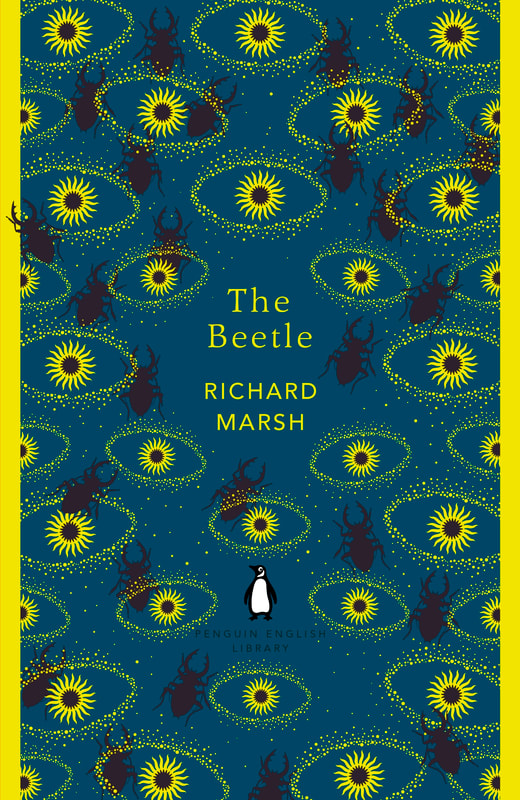I often struggle to get through Victorian novels, but this one was surprisingly readable. The plot moves along at a clip, with always something going on, and I kept wanting to know what happened next. The language wasn’t too old-fashioned, and though obviously there were some archaisms, they didn’t make the text feel bogged down.
Marsh is excellent at creating a feeling of tension and horror. The early portions of the novel are particularly creepy, as we follow the homeless and desperate Robert Holt as he has the book’s first encounter with the Beetle. The descriptions of him finding it in the abandoned house and coming under its manipulative spell are truly nightmarish, speaking to a fear of loss of autonomy and self-control. Also enjoyable are the appearances of the Beetle to Lessingham’s friend and secret romantic rival Sydney Atherton, though these are tempered with some unfortunate Orientalism.
As the book goes on, some of the novelty does wear off a little, though I was never bored enough to stop. The finale, which involves a train journey, could have been more imaginative, given the Beetle’s supernatural abilities, which weren’t really used at all. The relationship drama between Lessingham, Atherton, and their mutual interest Marjorie Lindon could have been developed more. Though the framing device was interesting, I’d have liked to see some of the novel from Lessingham’s perspective too. However, these are minor criticisms of what was by and large a very good novel.
The Beetle was popular from its publication up to the 1960s, when it went out of print. It was revived by Hugh and Graham Greene, who published it in a collection of four Victorian novels called Victorian Villainies. They said that they had ‘long felt that The Beetle [was] a book which should not be out of print’, and it’s easy to see why. It’s a thrilling horror story, a romance, and a social commentary all in one. If you want to read classic novels but are put off by huge tomes, The Beetle is a good place to start. It’s a fine example of Victorian Gothic fiction, and deserves to be much more widely read.
Review by Charlie Alcock

 RSS Feed
RSS Feed
